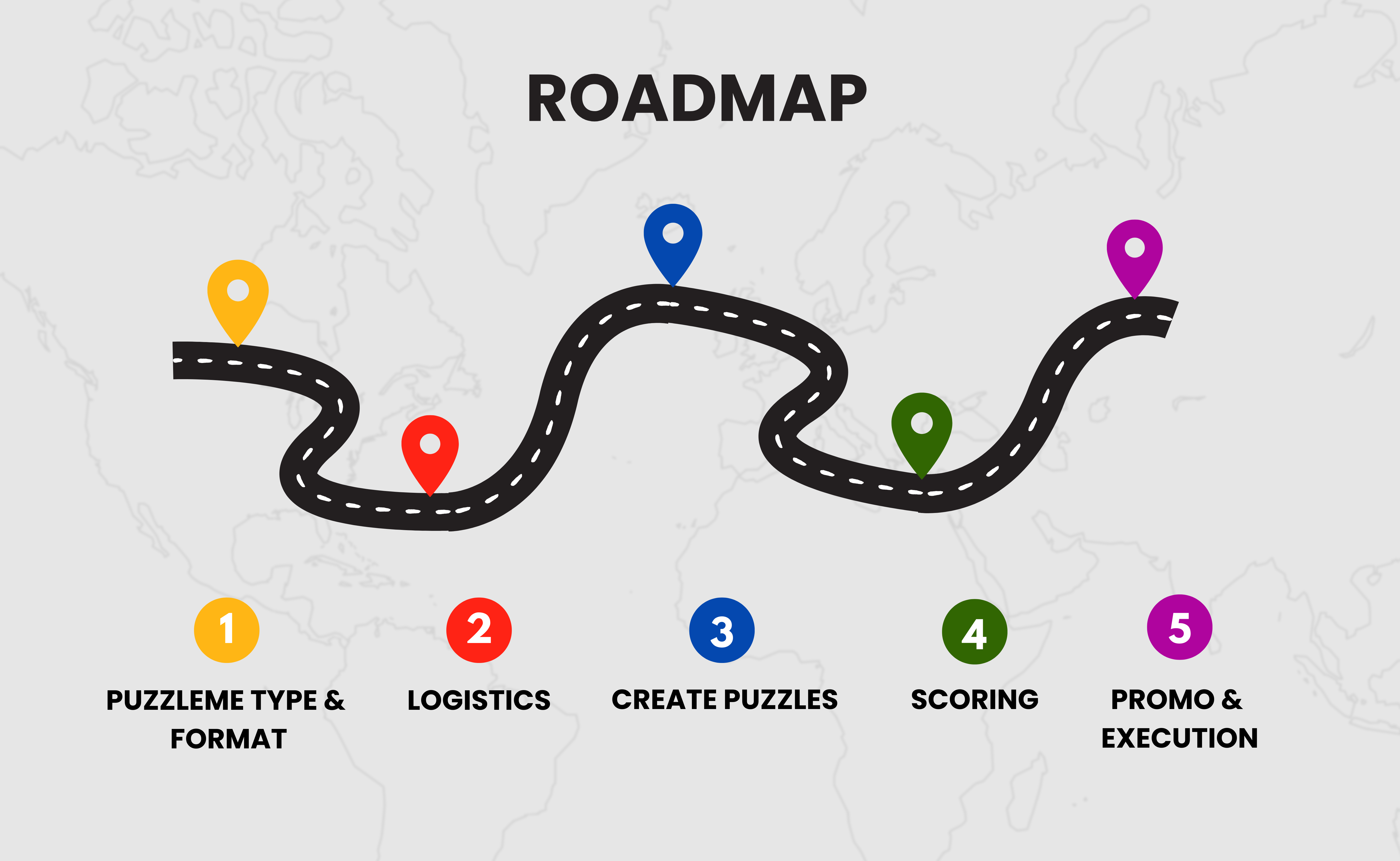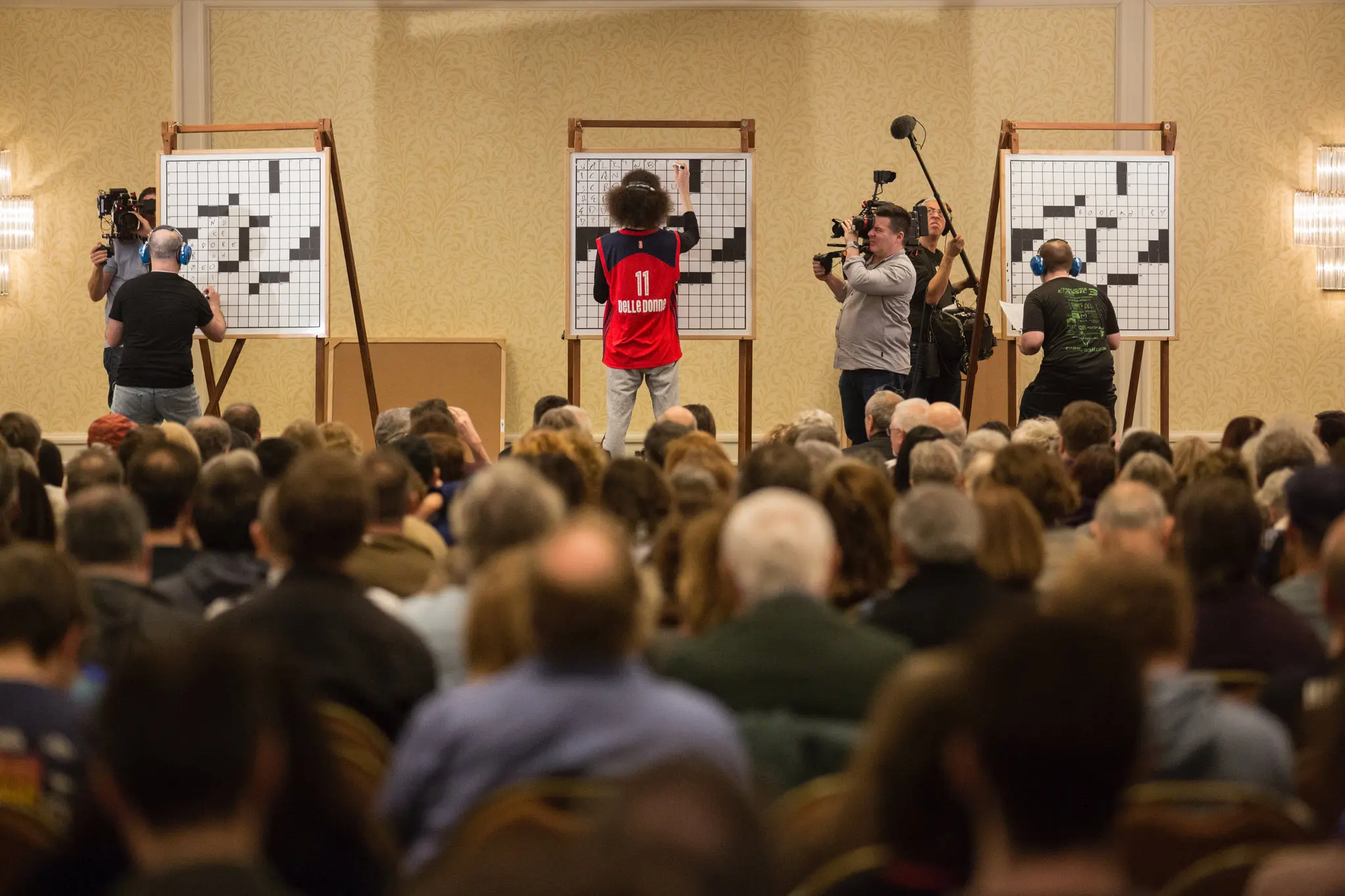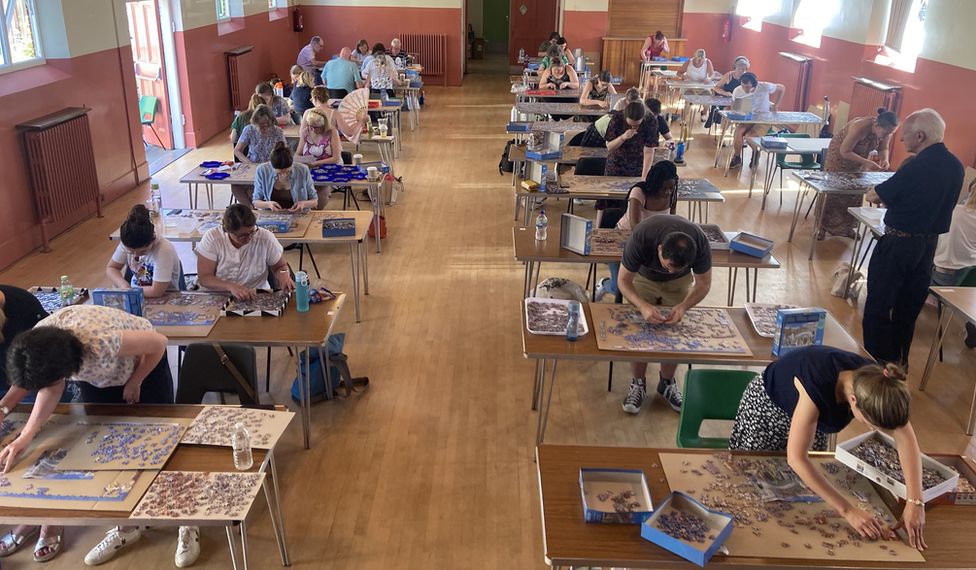Ever wondered how fun it would be for a whole room to come together and solve a puzzle? Enter the world of puzzle competitions. From local libraries to corporate offices, hosting a puzzle competition is the trendiest icebreaker.
But why all the fuss about puzzles? Well, they’re brain food! These competitions sharpen minds, boost problem-solving skills, and even foster social connections. Plus, there’s something for everyone – whether you’re 8 or 80, a math whiz or a word nerd.
While hosting a puzzle competition is a great choice, but executing it is an effort. PuzzleMe by AmuseLabs is here to help you build puzzles in no time and effortlessly integrate them into your next big event. Create smart games like crosswords, jigsaws, sudokus, and much more absolutely free.
5 Steps to Host a Puzzle Competition Successfully
Hosting a puzzle competition may seem like a daunting task, but with the right approach, it can be an incredibly rewarding experience. Whether you’re organizing a local jigsaw race or planning the next big crossword showdown, these five steps will guide you through the process.
Stick around as we plan the 5 must-do steps for your next puzzle competition. It’s time to piece together some fun!

Step 1: Choose Your Puzzle Type and Format
The foundation of any great puzzle competition lies in selecting the right puzzle type and format. This decision will shape every aspect of your event, from participant expectations to logistical requirements.
Popular puzzle types:
Puzzle competitions can revolve around various brain teasers. Jigsaw puzzles test spatial reasoning and patience. Crosswords challenge vocabulary and general knowledge. Sudoku appeals to number enthusiasts and logic lovers.
Other options include word searches, quizzes, or even custom wordle challenges. Consider your event’s purpose, target audience’s age, and expertise when choosing.
Competition formats:
The format of your competition can dramatically affect its atmosphere and appeal. Timed formats create a sense of urgency and are great for puzzles with clear endpoints. Elimination formats, where participants are knocked out in rounds, build suspense.
Team-based competitions foster collaboration and are excellent for corporate or community events. You might also consider a points-based system for multi-puzzle competitions.
Case Study: American Crossword Puzzle Tournament (ACPT)

The ACPT, founded by Will Shortz, is a prime example of a successful puzzle competition format. With PuzzleMe world’s leading puzzle tournaments like ACPT hosts a primarily timed event where participants solve a series of crosswords of increasing difficulty. ACPT’s structure with PuzzleMe’s contest mode allows for both individual solving and a culminating spectacle, making it engaging for participants and audiences alike.
Step 2: Plan Your Logistics
Once you’ve decided on your puzzle type and format, it’s time to dive into the nitty-gritty of event planning. The success of your puzzle competition heavily relies on smooth logistics.
Venue selection and setup:
Choose a venue that accommodates your expected number of participants comfortably. If you’re hosting a digital competition, ensure your chosen online platform can handle the number of participants and has the necessary features for your puzzle type. PuzzleMe’s multiplayer option allow the smooth running of digital competitions.
Date, time, and equipment considerations:
Select a date and time that works for your target audience. Weekends often work best for large events. Consider the duration of your competition – will it be a few hours or a full day?
Make a comprehensive list of equipment needed, such as tables, chairs, timing devices, answer sheets, or digital devices if it’s a tech-based competition. Don’t forget to make it accessible!
Case Study: Lollapuzzoola – Managing a one-day crossword tournament:
Lollapuzzoola, a popular one-day crossword tournament held annually in New York City, offers great insights into efficient logistics management. They typically host their event on a Saturday in August, making it accessible for most participants. They use a combination of paper puzzles and digital scoring to balance traditional solving with efficient result tabulation. Lollapuzzoola also incorporates breaks between rounds, allowing participants to rest and socialize, which adds to the overall experience.
Lollapuzzola is crossword lover’s dream, as is this instagram user’s:
View this post on Instagram
Step 3: Create High-Quality Puzzles
The heart of any puzzle competition lies in the quality of its puzzles. Engaging, well-crafted puzzles will challenge participants and keep them coming back for more.
Designing puzzles in-house vs. outsourcing:
You have two main options here: creating puzzles yourself from scratch or outsourcing the task. In-house creation allows for complete control over content and difficulty, but it’s time-consuming and requires coding expertise. The other option of outsourcing to professionals would be quickest but will probably be expensive with limited customization.
Therefore, we recommend using the efficient third option of no-code platforms like PuzzleMe. These platforms save time, money and ensure high-quality customized puzzles. Additionally, PuzzleMe offers a user-friendly interface to create various puzzle types, making it an excellent option for both novice and experienced organizers.
Here is a quick tutorial for creating a sudoku:
Ensuring appropriate difficulty levels:
Balancing difficulty is crucial. Puzzles should challenge participants without being frustratingly hard. Consider creating a range of difficulty levels to cater to different skill sets. If using PuzzleMe, you can easily adjust parameters to fine-tune the complexity of your puzzles.
Case study: Mathletics – creating challenging Sudoku puzzles

Mathletics, known for its challenging Sudoku competitions, demonstrates the importance of thoughtful puzzle creation. The City Montessori School in India organizes Matheletics International, an inter-school math competition with over 100 students participating from across South Asia. They use PuzzleMe’s sophisticated algorithms to generate Sudoku grids with unique solutions, ensuring fairness. PuzzleMe’s tools allow you to adjust the difficulty and create variants like Mathdoku, Killer Sudoku, etc. for high-level competitions like Mathletics.
Step 4: Score Them Right
A well-designed scoring system is crucial for the fairness and credibility of your puzzle competition. It should be transparent, easy to understand, and leave no room for ambiguity.
Creating a fair and transparent scoring system:
Develop a scoring system that accurately reflects the difficulty and complexity of each puzzle. For timed competitions, consider awarding points based on both accuracy and speed. Clearly communicate the scoring rules to all participants before the competition begins. If using a platform like PuzzleMe, take advantage of its built-in scoring features to ensure consistency and reduce human error in tabulation.
Handling tiebreakers and disputes:
Prepare for potential ties by establishing clear tiebreaker rules in advance. This could involve additional speed rounds, sudden-death puzzles, or considering secondary factors like solving time. Have a dispute resolution process in place to handle any contestations fairly. Designate impartial judges to make final decisions on ambiguous answers or rule interpretations.
Case study: WeWork’s quiz competition – structuring rounds and point systems
WeWork’s corporate quiz competitions offer an excellent model for effective scoring. They typically structure their events in multiple rounds, each with a different theme or puzzle type. Points are awarded for correct answers in each round, with some rounds offering bonus points for speed or difficulty. This multi-round structure keeps participants engaged and allows for a diverse range of skills to be showcased.
Step 5: Promote and Execute Your Event
The final step in hosting a successful puzzle competition is effective promotion and smooth execution. This stage can make or break your event, turning it from a quiet gathering into a buzz-worthy happening.
Marketing strategies:
Leverage various channels to reach your target audience. Engage with online puzzle communities on forums like Reddit or specialized puzzle websites. Don’t overlook traditional methods – local advertising through flyers or community bulletin boards can be effective, especially for smaller, community-focused events.
Here is a sample poster!
Day-of event management:
Set up a streamlined registration process, whether through a dedicated website or even a google form. On the big day, arrive early to set up and do a final check of all equipment and materials. Have a detailed schedule and stick to it as closely as possible. Designate roles to team members for various tasks like registration, timekeeping, and score tabulation. Be prepared to handle unexpected issues swiftly and calmly.
The British Jigsaw Championship’s execution strategy:

The British Jigsaw Championships exemplify excellent promotion and execution. They partner with puzzle manufacturers for sponsorships and buzz, utilizing puzzle magazines, local press, and social media for marketing.
Their success lies in balancing serious competition with a sense of community, appealing to both dedicated puzzlers and casual enthusiasts. This approach ensures a smooth, enjoyable event that participants eagerly anticipate each year.
Hosting Made Fun!
Organizing a puzzle competition doesn’t have to be a headache-inducing challenge. With these five steps and the right tools, you can create an event that’s as enjoyable for you as it is for your participants.
With PuzzleMe in your toolkit, you can concentrate on crafting a memorable experience for your participants. From customizable difficulty levels to seamless digital integration, PuzzleMe transforms the complex task of puzzle creation into a piece of cake. So why stress? Embrace the fun of hosting and let PuzzleMe take care of the rest.
- How to Start Your Own Jigsaw Puzzle Blog - April 16, 2025
- How to Host a Jigsaw Puzzle Competition Online - March 20, 2025
- Add Games to Squarespace: All You Need to Know - January 9, 2025